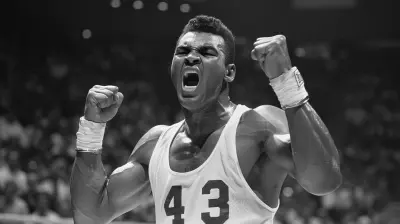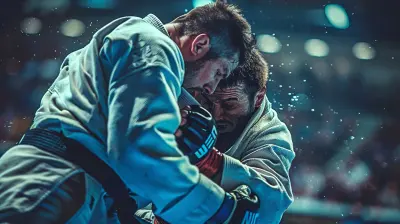Dehydration and Heat Exhaustion: Recognizing and Avoiding the Risks
2 June 2025
Staying active is great for your health, but when the heat is cranked up, your body faces a whole new set of challenges. Dehydration and heat exhaustion are no joke! One minute you're feeling invincible, the next you're dizzy, drained, and dangerously overheated.
So, how do you recognize the warning signs before it's too late? More importantly, how can you keep yourself from running on fumes in the first place? Let’s dive into what causes these heat-related conditions, how to spot them, and the best ways to stay cool and hydrated. 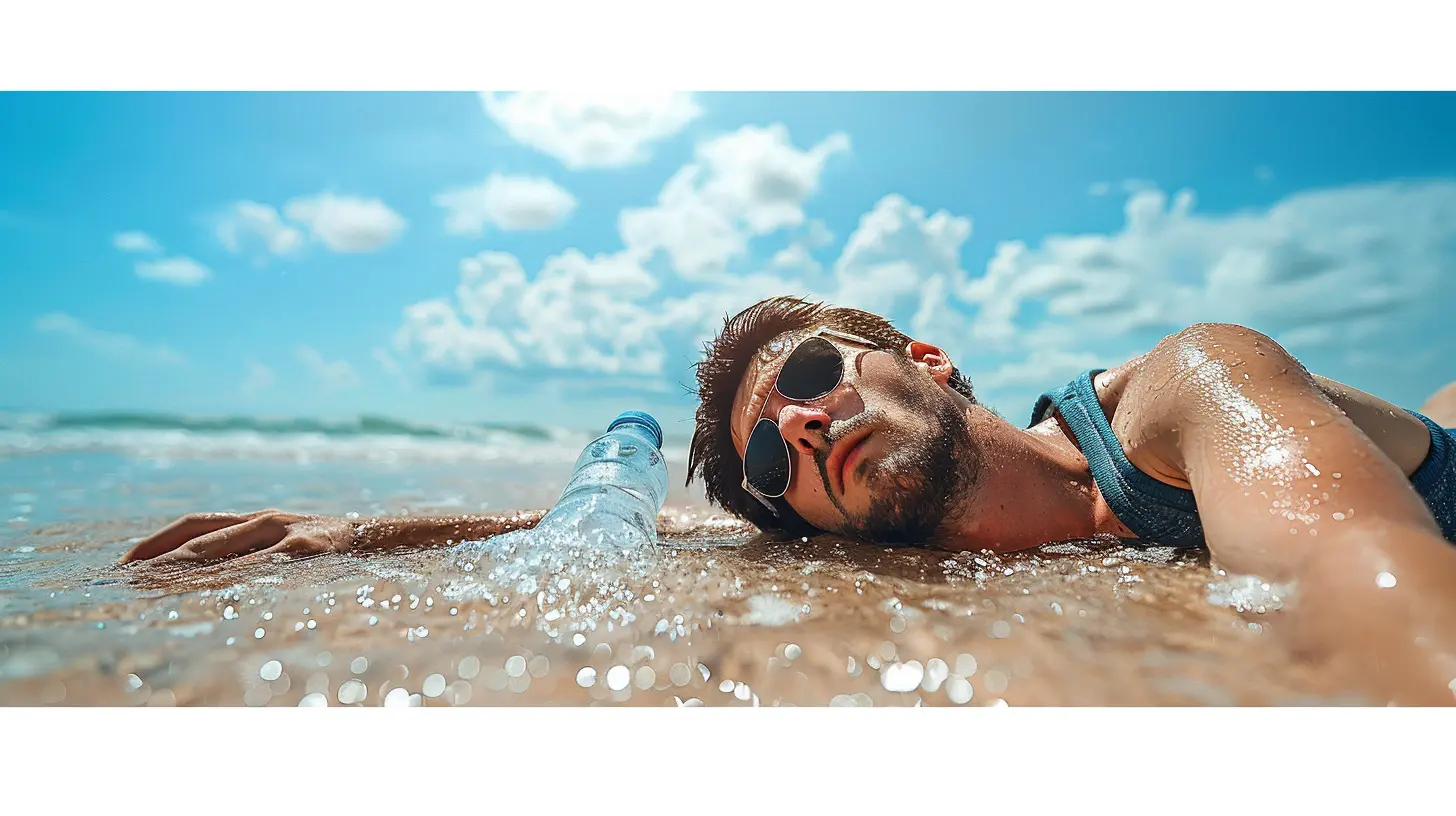
What is Dehydration?
Dehydration happens when your body loses more fluids than it takes in. Sounds simple, right? But when you're sweating buckets, especially in hot weather or during intense workouts, it’s easy to fall behind on hydration.Causes of Dehydration
Your body depends on water to function properly. But factors like these can throw your hydration levels off balance:- Excessive sweating – Whether you're crushing a workout or just sitting in the sun, sweating without replenishing fluids leads to dehydration.
- Not drinking enough water – Obvious yet overlooked. If you’re not drinking regularly throughout the day, you're setting yourself up for trouble.
- Intense exercise – High-intensity training in hot or humid conditions speeds up fluid loss.
- Illness (vomiting/diarrhea) – When your body loses fluids rapidly through sickness, dehydration can hit hard.
- Alcohol and caffeine – Both act as diuretics, making you lose fluids faster.
Signs of Dehydration
It’s easy to ignore dehydration until it becomes serious. Keep an eye out for:- Extreme thirst
- Dark yellow urine
- Dry mouth and lips
- Dizziness or lightheadedness
- Fatigue and lack of energy
- Headaches
- Muscle cramps
If you start feeling any of these symptoms, grab some water—fast! 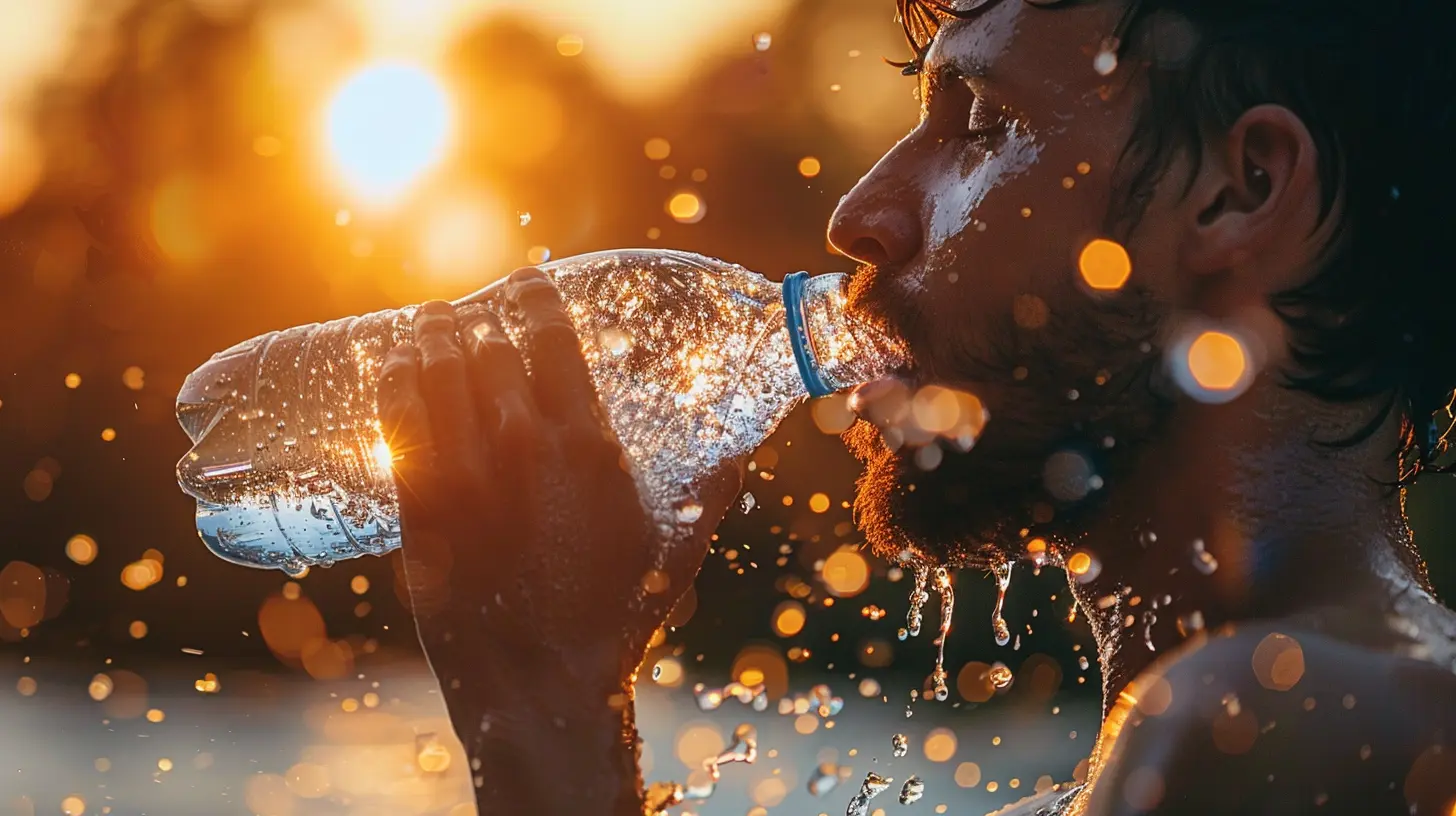
Understanding Heat Exhaustion
Heat exhaustion is a step beyond dehydration. When your body overheats and struggles to regulate its temperature, you’re in dangerous territory. It’s your body waving a big red flag, telling you to slow down before things get worse.What Causes Heat Exhaustion?
Your body cools itself through sweating, but when it can’t keep up with rising temperatures, heat exhaustion sets in. Common causes include:- High temperatures and humidity – The hotter and muggier it gets, the harder it is for sweat to evaporate and cool you down.
- Overexertion in the heat – Pushing too hard in hot conditions puts extra stress on your body.
- Dehydration – Without enough fluids, your body can’t sweat efficiently, making it nearly impossible to cool off.
- Inappropriate clothing – Wearing heavy, tight, or dark clothing traps heat instead of letting it escape.
Symptoms of Heat Exhaustion
Heat exhaustion doesn’t hit all at once—it sneaks up on you. Watch out for:- Heavy sweating
- Weakness or fatigue
- Dizziness or fainting
- Nausea or vomiting
- Rapid pulse
- Cool, clammy skin despite the heat
Ignoring these symptoms could lead to heat stroke, a life-threatening condition. If you feel these signs creeping in, it’s time to act fast. 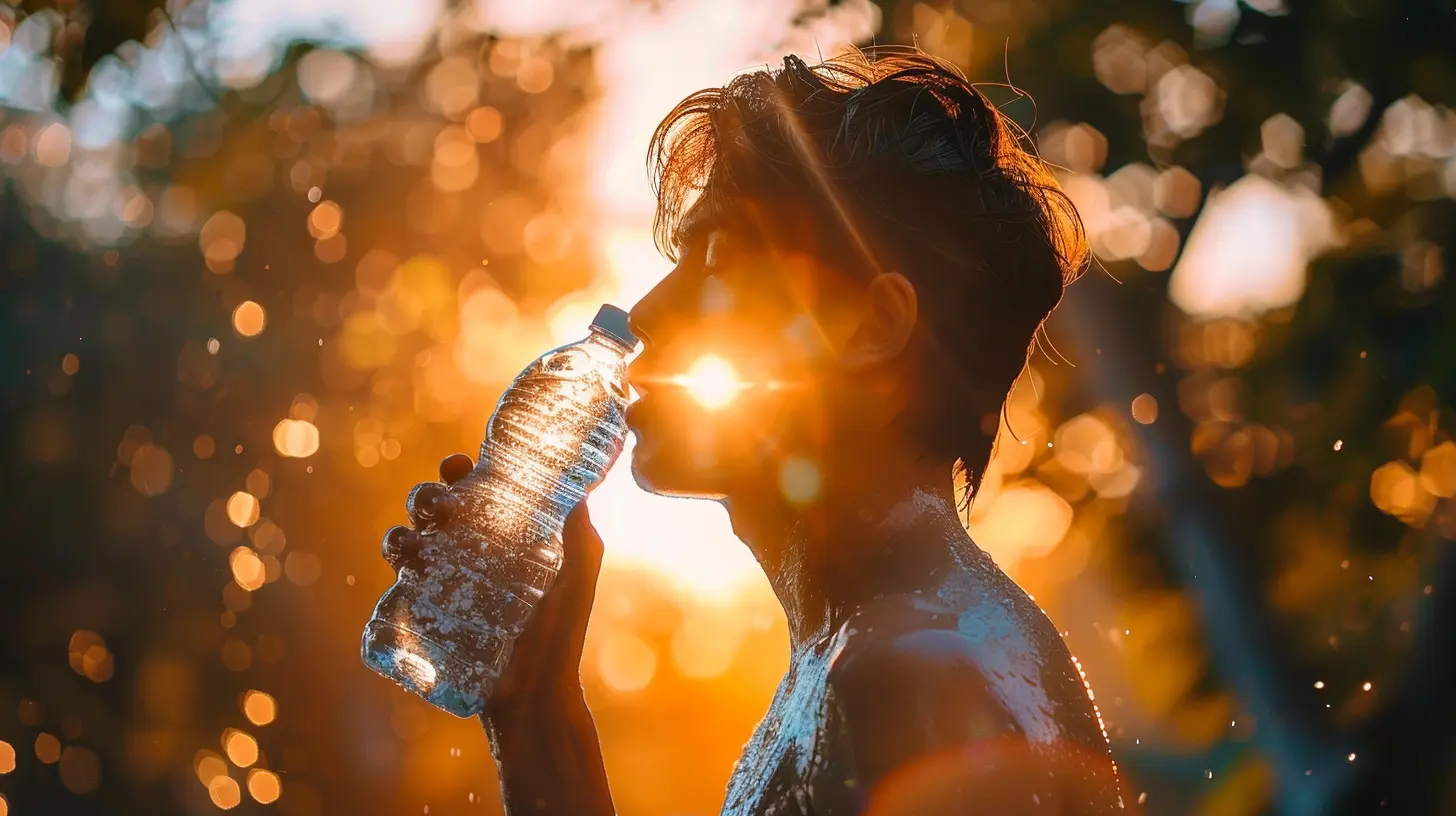
Dehydration vs. Heat Exhaustion: What’s the Difference?
Though closely related, dehydration and heat exhaustion aren’t the same. Dehydration is when your body lacks fluids, while heat exhaustion is your body overheating due to excessive fluid loss and high temperatures.Think of dehydration as the fuel gauge running low, and heat exhaustion as the engine overheating because there’s no coolant left. Both are dangerous, but one can quickly lead to the other if you're not careful. 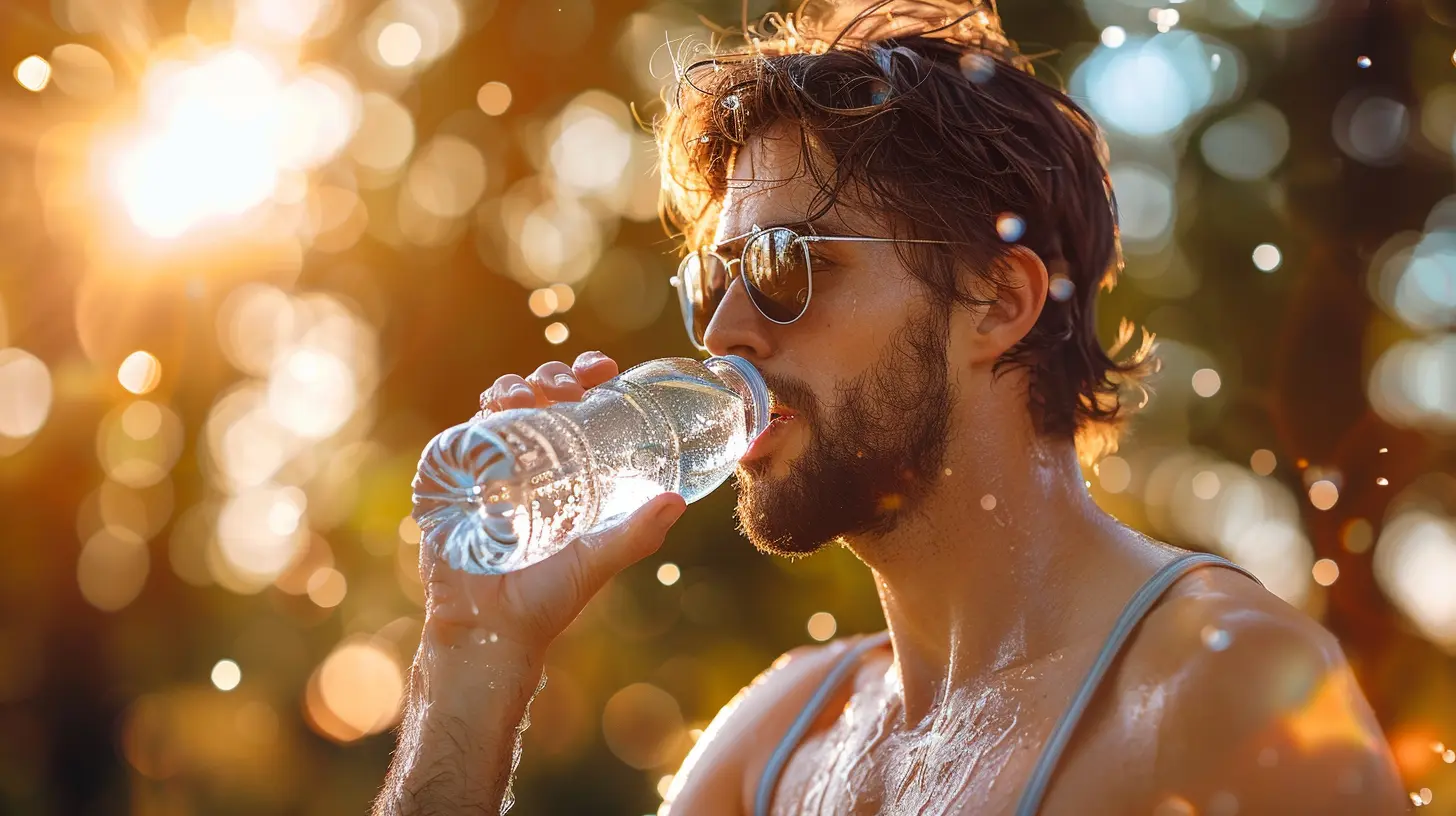
How to Prevent Dehydration and Heat Exhaustion
Now that you know the risks, let’s talk about how to avoid them. The good news? It's easier than you think!1. Stay Hydrated
This one seems obvious, yet so many people don’t drink enough water throughout the day. The rule of thumb? Aim for 8-10 glasses daily, and increase that when exercising or spending time in the heat. If you're sweating a lot, consider electrolyte-rich drinks like sports drinks or coconut water to replenish lost minerals.2. Know When to Take a Break
Listen to your body! If you start feeling dizzy, weak, or overly hot, stop what you’re doing and cool down. Resting in the shade or an air-conditioned space can make all the difference.3. Dress Smart
Lightweight, loose-fitting, and breathable clothing is your best bet when temperatures rise. Stick to light colors—they reflect heat instead of absorbing it. And don’t forget a hat and sunglasses for extra protection.4. Time Your Activities Wisely
Avoid outdoor workouts or strenuous activities during peak heat hours (typically between 10 AM and 4 PM). Early mornings and late evenings are much cooler and safer for physical exertion.5. Use Cooling Strategies
Stay cool by:- Taking cold showers or using cold towels on your neck and wrists.
- Sitting in front of a fan or in air-conditioned areas when possible.
- Drinking cold fluids instead of room-temperature drinks.
6. Don’t Ignore the Signs
If you start experiencing dehydration or heat exhaustion symptoms, don’t push through them—stop and rehydrate immediately. Catching these issues early prevents them from escalating into something more serious.What to Do If You Experience Heat Exhaustion
If you or someone else is struggling with heat exhaustion, follow these steps:1. Move to a Cooler Place – Get out of direct sunlight and into a shady or air-conditioned spot.
2. Loosen Clothing – Remove extra layers or tight clothing to help your body cool down.
3. Hydrate – Sip water or a sports drink slowly to replenish lost fluids.
4. Cool Down – Use wet towels on your skin, fan yourself, or take a cold shower.
5. Lie Down with Legs Elevated – This helps blood circulation and reduces dizziness.
If symptoms don’t improve after 30 minutes or worsen (especially if confusion, fainting, or vomiting occurs), seek medical help immediately.
Final Thoughts
Dehydration and heat exhaustion can sneak up on you faster than you think, especially when you're active in hot conditions. Your body is like a finely tuned machine—it needs water and the right conditions to function properly.By staying hydrated, dressing smart, timing your workouts wisely, and recognizing early warning signs, you can keep yourself safe while enjoying the summer heat. Respect your limits, listen to your body, and don’t let dehydration or heat exhaustion ruin your day. Stay cool, stay safe, and keep moving!
all images in this post were generated using AI tools
Category:
Sports MedicineAuthor:

Preston Wilkins
Discussion
rate this article
2 comments
Henrietta Roth
Great article! Staying hydrated is crucial for athlete safety and performance.
June 19, 2025 at 4:07 AM

Preston Wilkins
Thank you! I’m glad you found it helpful. Staying hydrated is indeed vital for both safety and optimal performance in athletes.
Adria Schultz
Stay hydrated and vigilant—preventing dehydration is crucial for peak performance and safety in sports.
June 3, 2025 at 2:17 AM

Preston Wilkins
Absolutely! Staying hydrated is essential for maintaining performance and safety in sports, especially in hot conditions. Thank you for the reminder!

